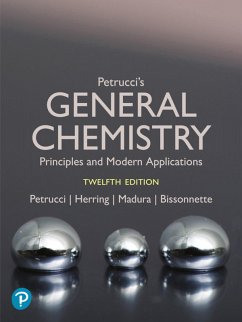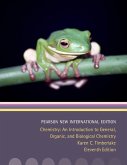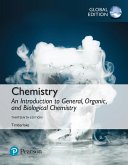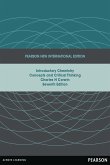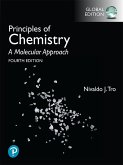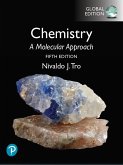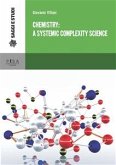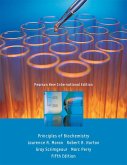The most trusted general chemistry text is back in a thoroughly revised 12th edition.
Petrucci's General Chemistry: Principles and Modern Applications is written for students who have already studied some chemistry. Students with no prior background and those who could use a refresher will find that the early chapters develop fundamental concepts from the most elementary ideas. Students who plan to become professional chemists will also find opportunities in the text to pursue their own special interests.
Petrucci's General Chemistry: Principles and Modern Applications is recognized for its superior problems, lucid writing, precision of argument, and meticulous treatment of the subject. The 12th edition offers enhanced hallmark features, new innovations, and revised discussions that respond to key market needs for the detailed and modern treatment of chemistry, embracing the power of visual learning and conquering the challenges of effective problem solving and assessment. In every explanation, illustration, and media resource, students and instructors benefit from the care and craftsmanship of an extraordinarily talented and collaborative authorial team who shared a wealth of experience from regularly teaching a general chemistry course for majors as well as non-majors.
Also Available with Mastering(TM) Chemistry
This title is also available with Mastering Chemistry-an online homework, tutorial, and assessment program designed to work with this text to engage students and improve results. Interactive, self-paced tutorials provide individualized coaching to help students stay on track. With a wide range of activities available, students can actively learn, understand, and retain even the most difficult concepts.
Students, if interested in purchasing this title with Mastering Chemistry, ask your instructor for the correct package ISBN and Course ID. Instructors, contact your Pearson representative for more information.
Petrucci's General Chemistry: Principles and Modern Applications is written for students who have already studied some chemistry. Students with no prior background and those who could use a refresher will find that the early chapters develop fundamental concepts from the most elementary ideas. Students who plan to become professional chemists will also find opportunities in the text to pursue their own special interests.
Petrucci's General Chemistry: Principles and Modern Applications is recognized for its superior problems, lucid writing, precision of argument, and meticulous treatment of the subject. The 12th edition offers enhanced hallmark features, new innovations, and revised discussions that respond to key market needs for the detailed and modern treatment of chemistry, embracing the power of visual learning and conquering the challenges of effective problem solving and assessment. In every explanation, illustration, and media resource, students and instructors benefit from the care and craftsmanship of an extraordinarily talented and collaborative authorial team who shared a wealth of experience from regularly teaching a general chemistry course for majors as well as non-majors.
Also Available with Mastering(TM) Chemistry
This title is also available with Mastering Chemistry-an online homework, tutorial, and assessment program designed to work with this text to engage students and improve results. Interactive, self-paced tutorials provide individualized coaching to help students stay on track. With a wide range of activities available, students can actively learn, understand, and retain even the most difficult concepts.
Students, if interested in purchasing this title with Mastering Chemistry, ask your instructor for the correct package ISBN and Course ID. Instructors, contact your Pearson representative for more information.
Dieser Download kann aus rechtlichen Gründen nur mit Rechnungsadresse in A, B, BG, CY, CZ, D, DK, EW, E, FIN, F, GR, HR, H, IRL, I, LT, L, LR, M, NL, PL, P, R, S, SLO, SK ausgeliefert werden.

